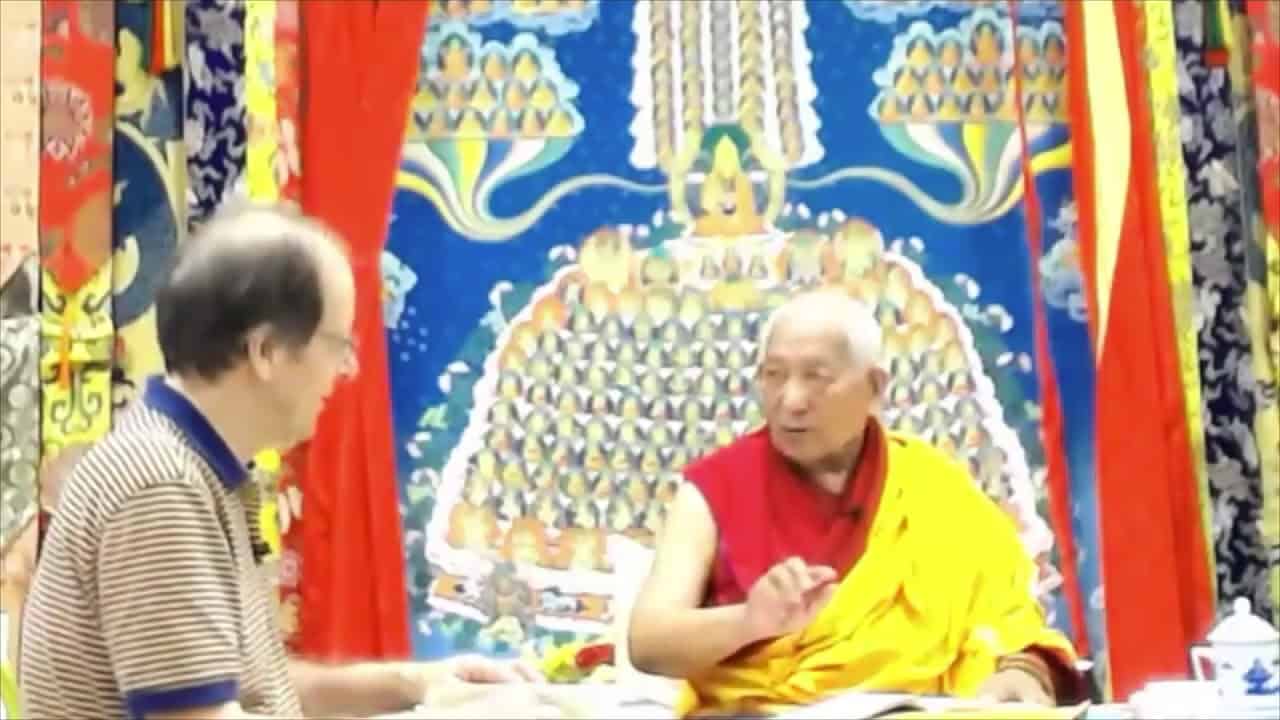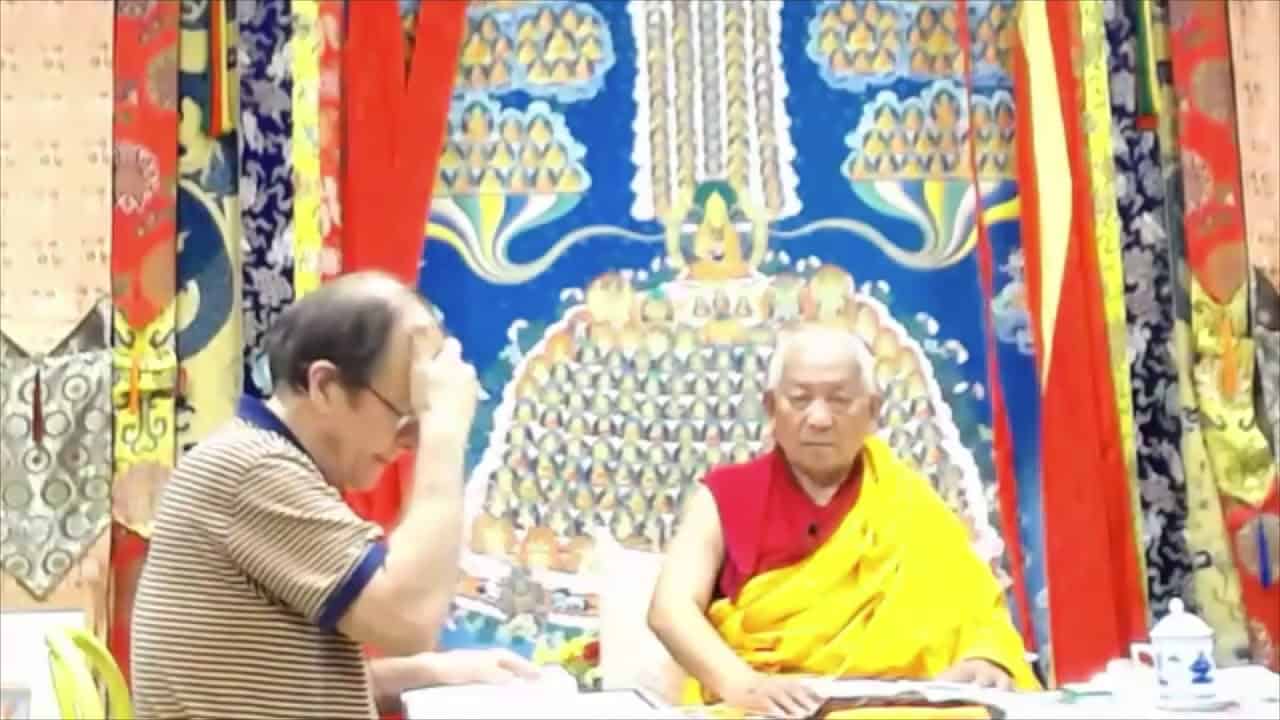Chapter 15: Verses 351-359
Part of a series of teachings on Aryadeva's 400 Stanzas on the Middle Way given on an annual basis by Geshe Yeshe Thabkhe from 2013-2017.
- Refuting the assertion that products exist inherently because their characteristics exist inherently
- A cause not existing at the time of the effect cannot be produced by way of its own entity
- Refuting inherently existent production by examining the time of production
- Does one thing turning into another confirm inherently existent production?
- Refuting inherently existent production, duration and disintegration
- Refuting by examining dependence of the product on causes and conditions
- Refutation by examining if production exists after, before or simultaneously with the product
- Refuting inherently existent production by examining if it truly exists in the present, future, or past
- Production and disintegration are merely labeled phenomena
Geshe Yeshe Thabkhe
Geshe Yeshe Thabkhe was born in 1930 in Lhokha, Central Tibet and became a monk at the age of 13. After completing his studies at Drepung Loseling Monastery in 1969, he was awarded Geshe Lharampa, the highest degree in the Geluk School of Tibetan Buddhism. He is an emeritus professor at the Central Institute of Higher Tibetan Studies and an eminent scholar of both Madhyamaka and Indian Buddhist studies. His works include Hindi translations of The Essence of Good Explanation of Definitive and Interpretable Meanings by Lama Tsongkhapa and Kamalasila's commentary on the Rice Seedling Sutra. His own commentary, The Rice Seedling Sutra: Buddha’s Teachings on Dependent Arising, was translated into English by Joshua and Diana Cutler and published by Wisdom Publications. Geshela has facilitated many research works, such as a complete translation of Tsongkhapa’s The Great Treatise on the Stages of the Path to Enlightenment, a major project undertaken by the Tibetan Buddhist Learning Center in New Jersey where he teaches regularly.


